Summer Favorites for Your Emotional Well-Being
As I sit in my office writing to you, I'm watching a house being built from the ground up across the street. As you might imagine, construction is not quite my thing. Yet, since we moved into our home in April - built by the same crew now across the street - I have a newfound appreciation for what goes on behind the scenes in order for a whole house (our house!) to magically appear. As I glance out the window to check on the progress in between client sessions, I can't help but to geek out on the philosophical parallels between building a house and the emotional healing process (stay with me); the messiness and intricacies, the (wo)manpower, the art and also precision, the pausing, stalling, and then the momentum and efficiency. And underneath it all, the showing up day after day. (I wrote about this healing process in a Medium article last year, if you're interested to read more or revisit.)
As a Behavioral Food Therapist, I’m interested in how your past experiences, current beliefs and behaviors, and relationship with your body and emotions shape your relationship to food.
I don't think food itself is addictive, rather the way we interact with food - and what it symbolizes for us when we turn to it to fill a void - can have addiction-like qualities. Similar to any addiction - whether it's drugs, sex, alcohol, work, perfectionism, people-pleasing, relationships, social media, etc. - food is not the problem. It's a symptom, the poor scapegoat.
As Dr. Gabor Mate says, we're focusing on the wrong thing. Instead of asking Why the addiction? we should be asking Why the pain?
What is the pain driving us to use food (or anything for that matter) to escape, to distract, to numb, to control? What's the abandoned wound or trauma or uncomfortable emotion we're avoiding that consequently casts an ever-growing, dulling shadow over us?
Once my clients are ready to turn towards their underlying pain, they begin to heal. And at some point in our journey together, we move into what I consider the soul work:
reshaping self-identity and worth
redefining how we want to show up for ourselves, in our food life and in the world
cultivating self-expression, authenticity and emotional resilience
and - like building a house - putting the proper scaffolding in place to prop up a long-lasting, nurturing relationship with food and self
But as we enter a post-ish-covid society (at least here in North America), it's not without some weightiness. We might be simultaneously processing the collective trauma of the pandemic and the accompanying grief and loss of various sorts, while also anxiously anticipating what that reentry will look like and how we want to shape it for ourselves. All of this on top of "normal" life can amplify and intensify whatever type of relationship, with food or otherwise, we were already struggling with.
If this has been your experience and you're looking for emotional support and a reminder that you're not alone navigating difficult emotions and hard things, check out the resources below. I've compiled a list of documentaries, podcasts and a few books I've personally been enjoying and am excited to share with you in hopes that something here will be helpful.
My Make Peace with Food Six-Week Group Program (This program is in progress. If you’re interested in participating in a future program, be sure you’re subscribed to my newsletter. This is the first place I announce new events.)
The Me You Can't See (Oprah and Prince Harry's stunning docuseries. If you don't have Apple TV, consider watching with their 7 day free trial.)
Anything Dr. Edith Eger (the holocaust survivor, psychologist, and author): One of the overarching messages in her work is that you can't heal what you don't feel, and it's a driving principle in my work as well. Watch her in this interview with Marie Forleo or listen to her in her conversation with Gwyneth Paltrow.
Elizabeth Gilbert (watch this interview on living a creative, authentic life and a liberating perspective on grief and this interview on suffering and accessing inner wisdom.)
We Can Do Hard Things Podcast (hosted by Glennon Doyle, the author of Love Warrior and Untamed): Real and raw conversation. Just how it should be when in safe company. I love when Glennon brings on her wife, Abby, (so far) in episodes 4 & 7.
The Wisdom of Trauma (unfortunately the free viewing period is over but be on the lookout for it in the future. The world needs to see this. I hope they get a Netflix contract or something similar.)
Joan Didion: The Center Will Not Hold (a documentary on an American writer who uses her craft of writing to observe, understand, self-express, process and cope with social and personal struggles)
Books: Maybe You Should Talk to Someone and Good Morning, Monster
{New Recipe!} Eastern Mediterranean Carrot Chickpea Tray Bake - because good food also feeds the soul.
And of course, if you'd like one-on-one support get in touch for a free 30-minute consult.


